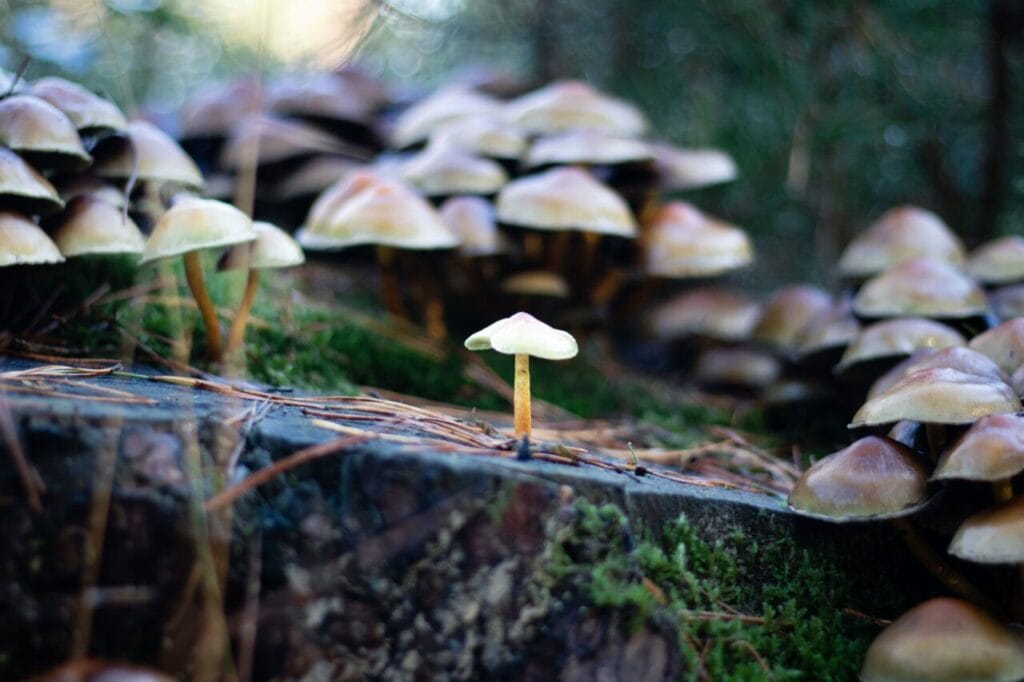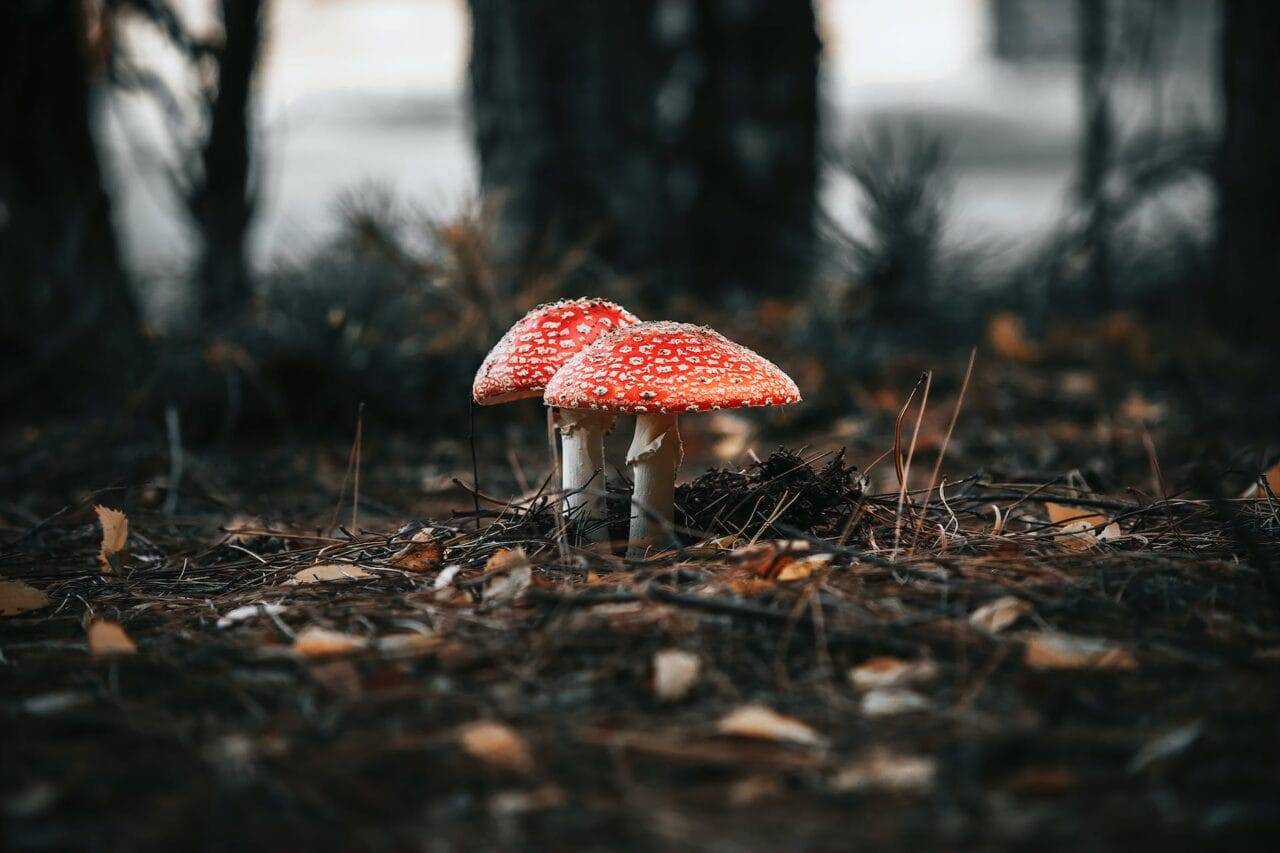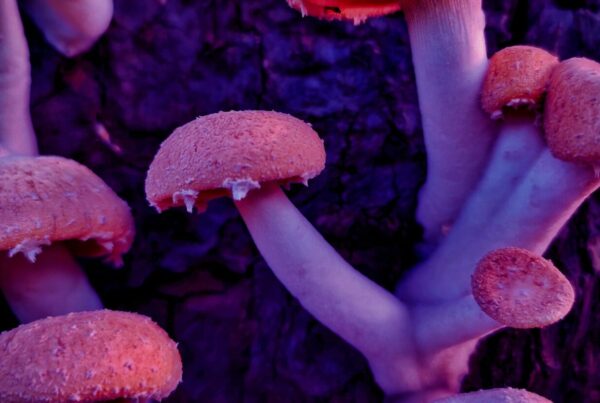Interest in psilocybin is increasing, largely due to studies indicating its potential for treating mental health conditions like anxiety and addiction. Despite this growing curiosity, acquiring psilocybin remains a challenge. The availability of shroom delivery services and laboratories offering magic mushrooms is limited, with costs often being high.
This article aims to delve into the evolution of psilocybin, its present status, and the potential benefits it can provide to those seeking aid.
[toc]Key Points:
- Mushroom cultivation requires significant effort and thorough monitoring to avoid contamination during the inoculation phase.
- Psilocybin creates a psychedelic experience by interacting with various brain areas, particularly the serotonin receptors.
- Psilocybin causes a slight increase in heart rate, which stabilizes shortly after intake, and typically does not lead to other negative effects.

Dedicated to Producing Top-Quality Magic Mushrooms
Magic mushrooms naturally thrive in various environments such as manure-rich fields, leaf-laden forests, grasslands, and woodlands. Over the years, people have frequented these areas to collect these fungi for medicinal purposes or for use in spiritual and religious rituals.
Traditional Method
Currently, the traditional practice of foraging for mushrooms in natural habitats is less common. This shift is likely due to the availability of alternative methods such as cultivation or the ability to buy magic mushrooms online.
Mushrooms in the wild tend to be less potent compared to those grown in labs, which are carefully cultivated under monitored conditions. Furthermore, foraging in the wild carries the risk of accidentally harvesting a poisonous species.
Modern Method
Shroom production begins with a detailed process focused on bringing spores to maturity. This sophisticated procedure requires a
Considerable time and meticulous focus are required to prevent potential contamination during the mushroom inoculation process. When the mushrooms are ripe for harvest, they are typically dried by labs or growers to extend their shelf life. Fresh mushrooms tend to last only a few days, but dried ones can be stored for several months, or even up to a year.
Manufacturers transform dried mushrooms into a range of products, including microdose capsules, edibles, tinctures, and drinks. These products are then distributed across Canada through magic mushroom delivery services.
Harnessing the Potential of Psilocybe Cubensis, or Magic Mushrooms
Researchers conduct clinical trials on mushrooms primarily to investigate their impact on mental health and mood disorders, informed by anecdotal evidence. A variety of studies are being conducted, exploring everything from microdosing with capsules to embarking on a mushroom trip with dried mushrooms or chocolate edibles.
Once consumed, psilocybin is metabolized into psilocin, a compound that mimics the function of serotonin, a neurotransmitter crucial for mood regulation. It interacts with several areas of the brain, specifically the serotonin receptors, instigating a psychedelic experience.
Those who undergo psilocybin therapy often report profound alterations beyond mere sensory amplification and visual changes. These experiences can trigger a substantial change in self-perception and a deep shift in personal perspective, often accompanied by profound insights.
Depression and Suicidal Thoughts
A study published in the Journal of Psychopharmacology explored the impact of a psychedelic experience on individuals grappling with depression and suicidal thoughts. Most participants deemed their experience with psilocybin as highly significant, underlining its potential influence on their lives. Such high levels of patient satisfaction could potentially increase the effectiveness of mental health interventions.
Safety Profile
In addition to examining the effects of psilocybin on depression and anxiety, researchers also study its safety profile. A study in JAMA Psychiatry reported that participants who consumed psilocybin showed a slight increase in heart rate and blood pressure two hours post-ingestion. However, further analysis utilizing Holter monitoring revealed no significant increase in cardiac arrhythmias risk in the psilocybin group compared to the niacin group. The study also found
No notable psychological discomfort was found among the users.





